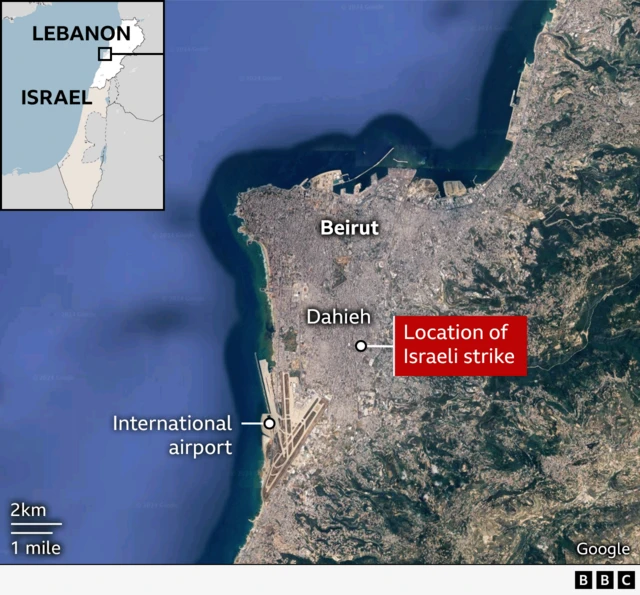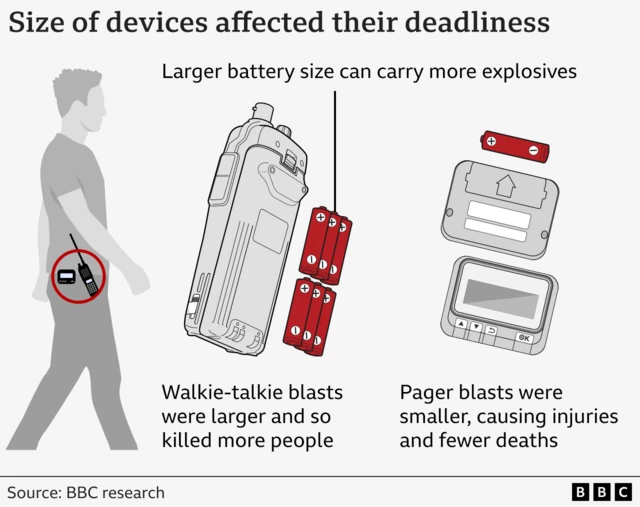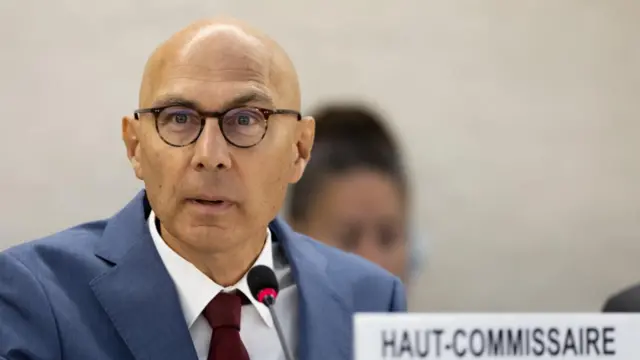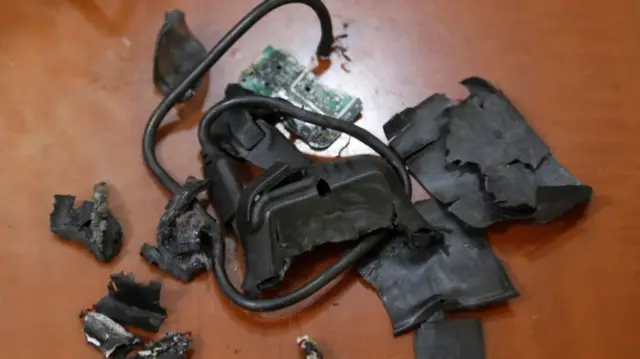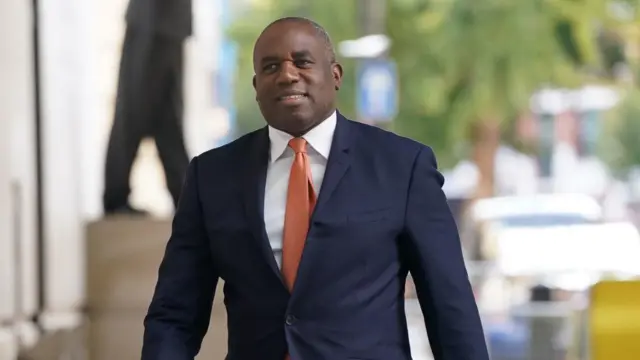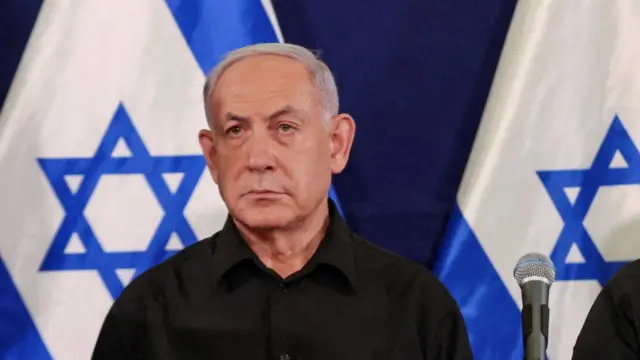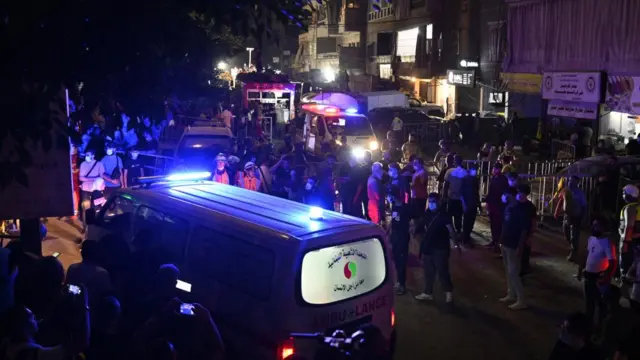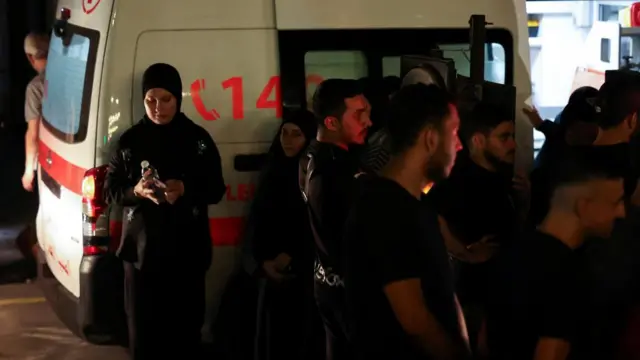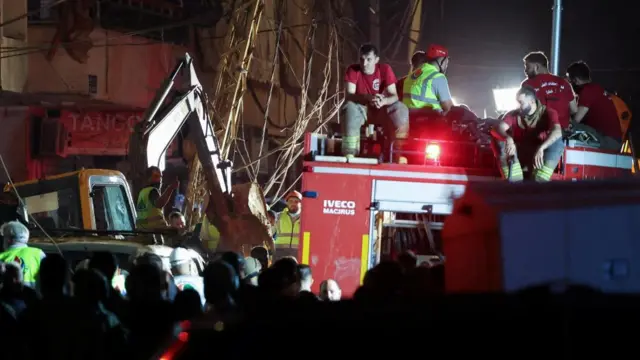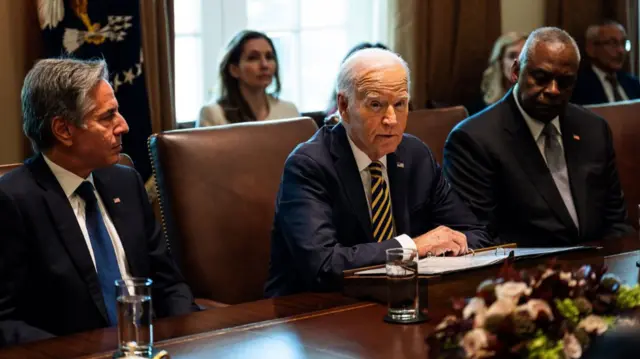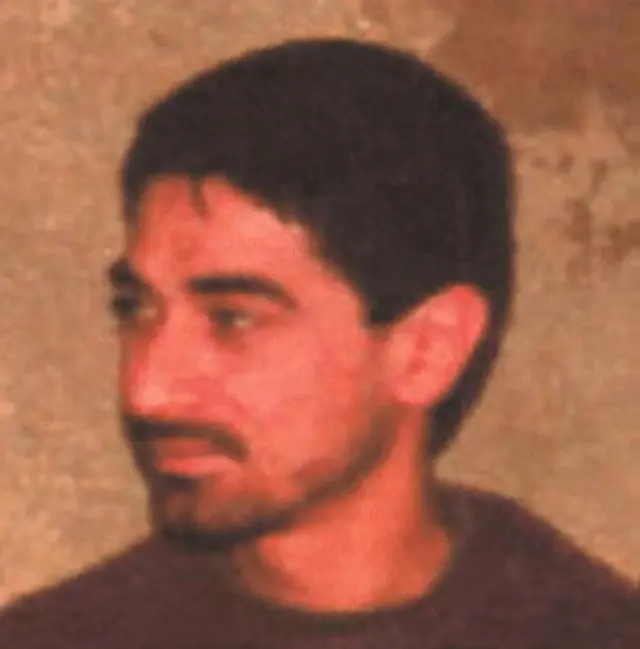Another deadly day in the Middle East as tensions rise furtherpublished at 21:57 BST 20 September 2024
We are pausing our live coverage of the situation in the Middle East for today. You can read more about today's strike in Beirut by clicking here.
- Fourteen people have been killed and 66 have been injured after Israel's military said it carried out a "targeted strike" on the suburb of Dahieh in southern Beirut - a stronghold of the armed group Hezbollah
- Israel said it killed Hezbollah's operations commander Ibrahim Aqil, alongside other senior members of an elite unit tasked with carrying out attacks on northern Israel
- Earlier today, Hezbollah fired 140 rockets from the Lebanese border into the north of Israel. One person sustained minor injuries, the Israeli police said
- Hezbollah said its attacks targeted Israeli army sites
- It comes after the explosion of pagers and walkie-talkies on Tuesday and Wednesday across Lebanon, which killed dozens and injured thousands
We will resume our coverage on Saturday. This page was edited by Sean Seddon, Adam Durbin, Nathan Williams and Dulcie Lee. Hugo Bachega, Carine Torbey and Nafiseh Kohnavard reported from Beirut.
